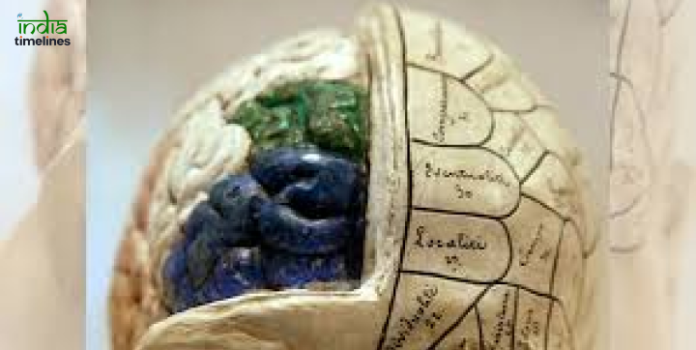
Brain tumours are complex and often devastating conditions that can affect anyone, regardless of age, gender, or background. On World Brain Day, observed annually on July 22nd, the focus is on raising awareness about brain tumours, their symptoms, treatment options, and the critical importance of early detection. This blog explores the significance of World Brain Day, the impact of brain tumours globally, signs and symptoms to watch for, diagnostic methods, treatment options, and the role of awareness in improving outcomes for patients.
Understanding Brain Tumours
A brain tumour is an abnormal growth of cells within the brain or close to it. Tumours can be benign (non-cancerous) or malignant (cancerous), and they can arise from different types of brain cells, including glial cells, neurons, and meninges. The exact causes of most brain tumours are not well understood, although certain risk factors such as genetic predisposition, exposure to radiation, and immune system disorders may play a role.
Impact of Brain Tumours Globally
Brain tumours have a profound impact on individuals, families, and communities worldwide. Consider these statistics and facts:
- Incidence and Prevalence: Brain tumours account for approximately 2% of all cancer diagnoses globally, but they are among the leading causes of cancer-related deaths in both children and adults under 40 years old.
- Survival Rates: Survival rates vary widely depending on the type and location of the tumour, as well as its stage at diagnosis. Early detection and prompt treatment are critical factors in improving survival outcomes.
- Quality of Life: Brain tumours can cause a range of symptoms, including headaches, seizures, cognitive changes, and motor impairments, significantly impacting a person’s quality of life and ability to perform daily activities.
Signs and Symptoms of Brain Tumours
Recognizing the signs and symptoms of brain tumours is crucial for early detection and timely intervention. Common symptoms may include:
- Headaches: Persistent and severe headaches that worsen over time.
- Seizures: Unexplained seizures, especially in individuals without a history of epilepsy.
- Cognitive Changes: Memory loss, difficulty concentrating, confusion, and changes in behavior or personality.
- Motor Deficits: Weakness or numbness in one side of the body, difficulty walking, and coordination problems.
- Vision or Hearing Changes: Blurred vision, double vision, or hearing loss.
Diagnostic Methods
Diagnosing a brain tumour typically involves a combination of imaging tests and neurological evaluations:
- MRI (Magnetic Resonance Imaging): Provides detailed images of the brain, allowing doctors to locate and assess the size and characteristics of a tumour.
- CT Scan (Computed Tomography): Uses X-rays to create cross-sectional images of the brain, helping to identify abnormalities such as tumours or hemorrhages.
- Biopsy: In some cases, a sample of tissue may be obtained through surgery or a needle biopsy to determine the type and grade of the tumour.
Treatment Options
Treatment for brain tumours depends on several factors, including the type, location, size, and overall health of the patient. Common treatment modalities include:
- Surgery: Surgical removal of the tumour, if feasible, is often the initial treatment to relieve pressure on the brain and obtain tissue for diagnosis.
- Radiation Therapy: Uses high-energy rays to target and destroy cancer cells or shrink tumours.
- Chemotherapy: Administering drugs to kill cancer cells or inhibit their growth, often used in conjunction with surgery and/or radiation therapy.
- Targeted Therapy: Drugs or other substances that block the growth and spread of cancer by interfering with specific molecules involved in tumor growth and progression.
Importance of Early Detection and Awareness
Early detection of brain tumours significantly improves treatment outcomes and patient survival rates. Increased awareness among the general public, healthcare professionals, and policymakers is crucial for:
- Prompt Medical Attention: Encouraging individuals to seek medical evaluation for persistent or concerning symptoms.
- Advancing Research: Supporting research initiatives focused on understanding the causes of brain tumours, improving diagnostic methods, and developing innovative treatments.
- Support and Advocacy: Providing resources and support networks for patients, caregivers, and families affected by brain tumours.
World Brain Day: A Call to Action
World Brain Day serves as a global platform to raise awareness, advocate for improved healthcare policies, and promote research efforts aimed at tackling brain tumours. Key initiatives on World Brain Day include:
- Educational Campaigns: Utilizing digital media, community events, and educational materials to disseminate information about brain tumours, their symptoms, and treatment options.
- Policy Advocacy: Calling for increased funding for brain tumour research, equitable access to healthcare services, and support for patient advocacy organizations.
- Patient Empowerment: Empowering patients and caregivers with knowledge about available resources, clinical trials, and support services.
Conclusion
World Brain Day highlights the critical need for increased awareness and early detection of brain tumours, emphasizing the importance of timely diagnosis and intervention. By understanding the signs and symptoms of brain tumours, advocating for research funding, and supporting initiatives that promote ethical AI development in India




























